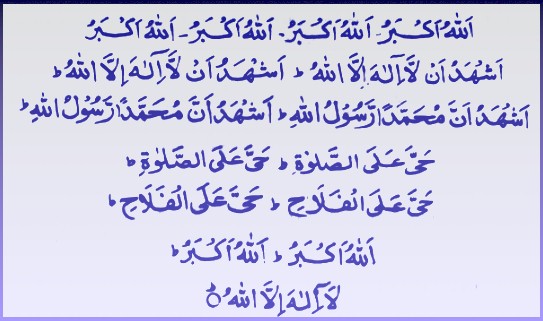Hazrat Bilal (RA)
The first muezzin of Islam

Bilal bin Rabah was one of the most famous companions of Prophet Muhammad (may peace and blessings of Allah be upon him). An oppressed slave from Abyssinia (now known as Ethiopia) he was one of the earliest converts to Islam in Makkah. He accepted Islam at a time when becoming a Muslim resulted in fierce persecution and even death. Also called Bilal al Habashi because of his ancestral roots, Bilal’s story is one of patience and endurance in face of fierce adversity.
The Slave:
Before the advent of Islam, slave markets thrived in the Arabian Peninsula. The pagan tribal chiefs were ruthless and cruel and their wealth was usually measured by now many slaves they had in their households. As per the custom, slaves were their master’s property to treat and dispose of as he saw fit and their lives were spent in abject poverty and misery.
Bilal bin Rabah was bought by a Quraish chief Umayyah bin Khalaf, a fierce believer in idol worship. Bilal’s duties were to graze his master’s camels during the day and take care of his meals in the evenings.
In the time when idol worshipping was the custom and pagan rituals the culture of Arabian peninsula, Bilal heard about the message of monotheistic Islam in the markets of Makkah. He heard about Prophet Muhammad (peace and blessings of Allah be upon him), the messenger of Allah who preached about justice and equality for all mankind and urged the people to shun idolatry.
The Muslim:
Bilal was deeply moved by this message. While grazing his master’s cattle under the scorching sun, he dared to think about things he had never thought of before. He believed that idols of stones could do no good nor bring harm to people. He secretly met Hazrat Abu Bakr, a close friend of Prophet Muhammad (peace and blessings of Allah be upon him) and accepted Islam. When Umayyah bin Khalaf came to know about his slave’s choice of religion, he was enraged. It was unheard of for a slave to do something of his own free will and Umayyah was determined to teach Bilal a lesson.
He was severely whipped and tortured but Bilal showed no sign of weakening. One day, Umayyah ordered his slaves to take Bilal to the desert and place a heavy boulder on his chest till he is crushed or he forsakes his new religion. Bilal kept on saying, “Allah is One. There is no god but Allah.”
The Free Man:
When Hazrat Abu Bakr came to know about this, he went to Umayyah and asked him to sell his slave. Tired of his slave’s defiance, Umayyah agreed to sell Bilal. After the transaction, Abu Bakr declared Bilal a free man. He became the part of the group who stayed close to Prophet Muhammad (peace and blessings of Allah be upon him) learning from him the teachings of Islam.
Due to the persecution of powerful Makkan chiefs, the handful of these new Muslims had to immigrate to the city of Medina. There a simple mosque was built as a place for Muslims to gather and offer prayers.
The Muezzin:
After the construction of Quba Mosque, Prophet Muhammad (peace and blessings of Allah be upon him) chose Bilal to give the first call for prayers making him the first official muezzin of the Islamic faith. This decision endorsed the beauty of the religion Islam where a dark skinned non Arab, former slave and a man with a different accent was chosen over all others for this great honor. It proved that in Islam, the measure of a person is not his wealth, nationality or race but his piety and devotion to Allah and Allah’s messenger Muhammad (peace and blessings of Allah be upon him).
For the next ten years, during the life of Prophet Muhammad, Bilal announced the adhan calling the faithful to the prayers, five times a day in his clear, melodious voice. When some people expressed their contempt due to his black skin, the following verses of Quran were sent down to chastise them;
“O mankind! We created you from a single (pair) of a male and a female, and made you into nations and tribes, that ye may know each other (not that ye may despise each other). Verily the most honoured of you in the sight of Allah is (he who is) the most righteous of you. And Allah has full knowledge and is well acquainted (with all things).” (Surah 49:13)
Last Days:
After Prophet Muhammad passed away, Bilal felt unable to continue his duties as the muezzin for his heart was full of sorrow. He stayed close to the first two Caliphs, Abu Bakr and Umar bin Khattab. Later in his life, he travelled to Damascus. He visited the Prophet’s Mosque in Medina one more time and said the adhan for the last time. He went back to Syria where he fell ill and died at the age of sixty




















